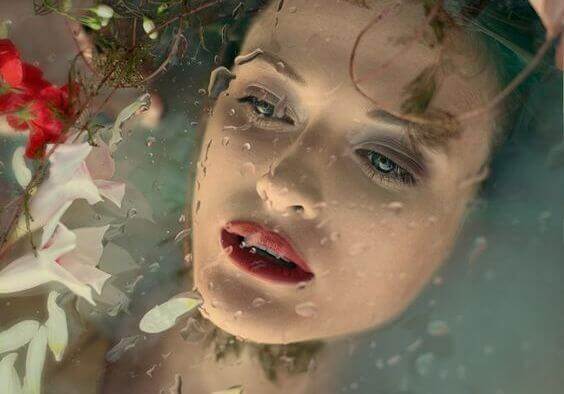Crying is an infinitely complex and very moving act, in fact, science always gives an incomplete answer when trying to explain why crying occurs; otherwise, in humans, it is a reaction associated with strong emotional states, whether of happiness or sadness. In some animals, which also let tears sprout from their eyes, we believe the motivations are the same.
Crying is pretty much the first way we can communicate with the world. It is the basis of our communication during the first months of life. One way of saying, “Am I there?” and “I need others”; precedes and transcends verbal language.
“The tears shed are bitter, but the bitterest are the ones we don’t shed. “Irish proverb?
Every healthy human being knows what it’s like to cry, sometimes we cry for suffering that we can’t express with words, sometimes because laughter crosses a line that turns into tears, sometimes we cry with emotion and even not knowing why.
Many people think that crying is a symbol of weakness and that is why it is rejected in sexist or very bossy environments. It is associated with the feminine and can therefore be a cause for disrespect. However, even the most macho warriors began their lives in tears. And if you don’t allow yoursing to cry during your life, it’s for an act of repression and not for unwillingness.
There are times when we feel filled with tears, but often there is a force that we cannot identify that prevents tears from falling from our eyes and tracing paths on our cheeks, on these occasions we feel cloudy, like a sky full of gray clouds. , and we don’t know exactly why. Often, this force that stops our tears has to do with the fear we feel of our own emotions: we are afraid to start and we will not be able to stop crying.
The phrase that gives title to this article reproduces a poem by Rubén Dao: “Youth, divine treasure, / who does not return / when I want to cry, I do not cry?/ And sometimes I cry unintentionally? This is what we feel in these moments in life when it takes strength to follow, but a tear calls us to pause.
You cry without knowing why you didn’t invest the time it takes to allow stored suffering to emerge in a healthy way. We are talking about a suffering that hides under all the tasks that you write in your journal and that manifests itself in each of them. because you didn’t have a precise time to be a protagonist and be cured.
You don’t cry about what oppresses you, but you can cry when you listen to the national anthem or watch a TV commercial that, in another emotional state, would have seemed terribly stupid to you.
Maybe what makes you cry is a melody, a reading or even a dog. When there is unresolved suffering, everything can be the trigger so that that unpleasant tear appears when you least expect it.
In addition, in times of great internal change, tears can come at any time, every important change means saying goodbye to another time that will no longer exist and, although it was full of bad times, it made a great sense in your life. In times of change, we become very sensitive to everything and tears often arise for no particular reason.
Crying is always a healthy act. First because it transforms internal pressure into an expression of our inner world, this is good because crying releases an inner force, lets it out and produces a sense of liberation and, to some extent, comfort, crying brings emotional liberation and in this way, creates a sense of well-being.
There’s a fact that’s still curious. Emotional tears have a different composition than “basic tears. “Basal tears are tears that we produce when the eye needs to lubricate or when irritated (for example, when cutting onions). Science has found that emotional tears contain more protein and more stress-associated hormones. Therefore, the idea that crying frees you is a scientifically sound statement.
Crying is also a language, a form of communication. Tears appear when words are not enough to define an emotion, such as when you achieve something decisive for your life, or when you witness an act that upsets every fiber of your being, so it is said that crying is very important. because it is associated with very deep emotions and yet there is no theory to fully explain it.
Those who boast of not crying suffer from something that can be defined as emotional illiteracy. Psychoanalyst Jean Allouch says we live in a time when people don’t want to cry, even when there are clear and sufficient reasons to do so. that this limitation can be the basis of many forms of depression. Crying is not a sign of weakness, but of spontaneity. Therefore, we can say without fear: Long live the cry!

